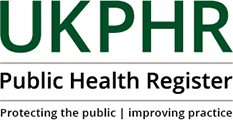Primary care: the public health input
When MPs return to Westminster after their summer break, members of the Health Select Committee will start an inquiry into primary care. The Committee’s aim is to consider whether the Department of Health and its arms’ length bodies have the plans and policies in place now to ensure that high quality care is consistently available to patients at the point of need.
It is open to all of us to send evidence to the Committee. The Committee is accepting written evidence up to Thursday 3 September 2015. The MPs on the Committee intend to consider issues such as:
- The quality and standards of care for patients
- Demand and access (including out of hours access and proposals for 7 day access)
- Funding (including local and national distribution of resourcing)
- Commissioning
- Future models of care as piloted by the Five Year Forward View Vanguards
- Workforce: current and future challenges (including recruitment, retention, training, skill mix, contractual models, workload and pay).
There ought to be a lot of interest in these areas of inquiry among all those who organise, lead, commission and deliver public health services. Have you thought of sending the Committee your written evidence?
It seems to me that the Simon Stevens’ call – in last year’s NHS Five Year Forward View – for a radical upgrade in prevention and public health can be a game-changer for all who work in public health. However, the practical changes that need to happen at all levels and in so many areas are huge and making them happen will be very complex.
A top challenge, it seems to me, is translating the words into actions. The NHS is facing growing demands due to demographic, technological and behavioural changes. Simon Stevens says that the financial impacts of these changes will be unmanageable if we do not make a success of prevention and public health. Let’s not stand back and watch the car crash, let’s explain what we mean by going upstream and show how to.
With spending tight right across the public sector it is more important than ever to secure partnership working across organisations. The recent CfWI/RSPH report on the wider public health workforce tells us that we may have 5 million unpaid carers and up to 15 million fellow workers capable of being our allies.
Whether the politicians in England legislate for local authorities to lead on public health instead of the NHS or politicians in Scotland legislate for health and social care services to be integrated, it still falls to individuals to make the arrangements work for the benefit of the public.
We have a road map in the Marmot Review: tackle the wider determinants of health, adopt a life-stages approach, empower individuals and communities, make the most of community assets and so on…
We have the skills, knowledge and competence of a core public health workforce to lead a joined-up, holistic strategy for improving the public’s health and wellbeing. We have a wider workforce and enormous societal assets to tap into. So what’s missing?
Is it the voice of the public health workforce that is missing? And is this because no-one is listening – or perhaps too few are speaking? Of course there are obstacles around employer-employee relationships and organisations’ proper lines of communication. But here is another way in which Simon Stevens’ Five Year View may be a game-changer: which employer, which organisation is going to disagree with his analysis of the problems ahead and the only clear solution for addressing them?
Shape responses to the Health Select Committee’s call for evidence around this agenda and surely the public health voices will be loud and clear in the evidence the MPs receive between now and the autumn Parliamentary term.



Comments are closed.